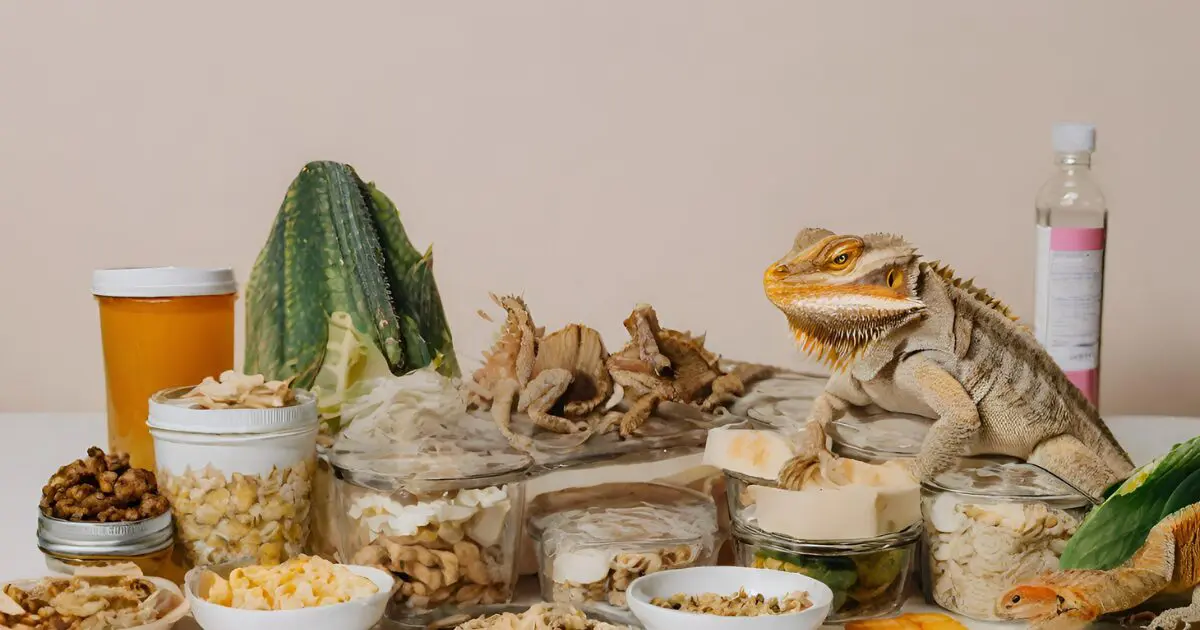Did you know beardies can live up to 15 years in captivity? With proper care, they can be a long-time companion for you. But for that, you need to ensure a healthy diet for your pet. What can a bearded dragon eat?
Bearded dragons are omnivores and can eat a variety of foods. And you must maintain variety in their diet as giving the same food may result in lack of nutrition and boredom. They can eat vegetables, insects, as well as fruits and flowers. But there are certain foods they cannot eat.
This article will help you understand their diet and needs, as well as provide proper guidance on how to feed them. You won’t have to look for other pages, guaranteed.
What To Feed A Bearded Dragon
A good bearded dragon diet consists of insects, vegetables, and fruits. You can also give them supplementary food occasionally. They can eat a variety of foods. Have a look at the table below.
| Insects | Vegetables | Flowers | Fruits |
| Crickets | Collard Greens | Dandelions | Apples |
| Dubia Roaches | Kale | Hibiscus | Blueberries |
| Mealworms | Mustard Greens | Roses | Grapes |
| Superworms | Turnip Greens | Clover | Mango |
| Phoenix Worms | Bok Choy | Carnations | Papaya |
| Hornworms | Swiss Chard | Marigolds | Strawberries |
| Black Soldier Fly Larvae | Endive | Fuchsia | Kiwi |
| Butterworms | Bell Peppers | Squash Blossoms | Watermelon |
| Silkworms | Carrots | Nasturtiums | Pears |
| Waxworms | Cucumber | Rosemary | Bananas |
Feeding Insects to Bearded Dragons
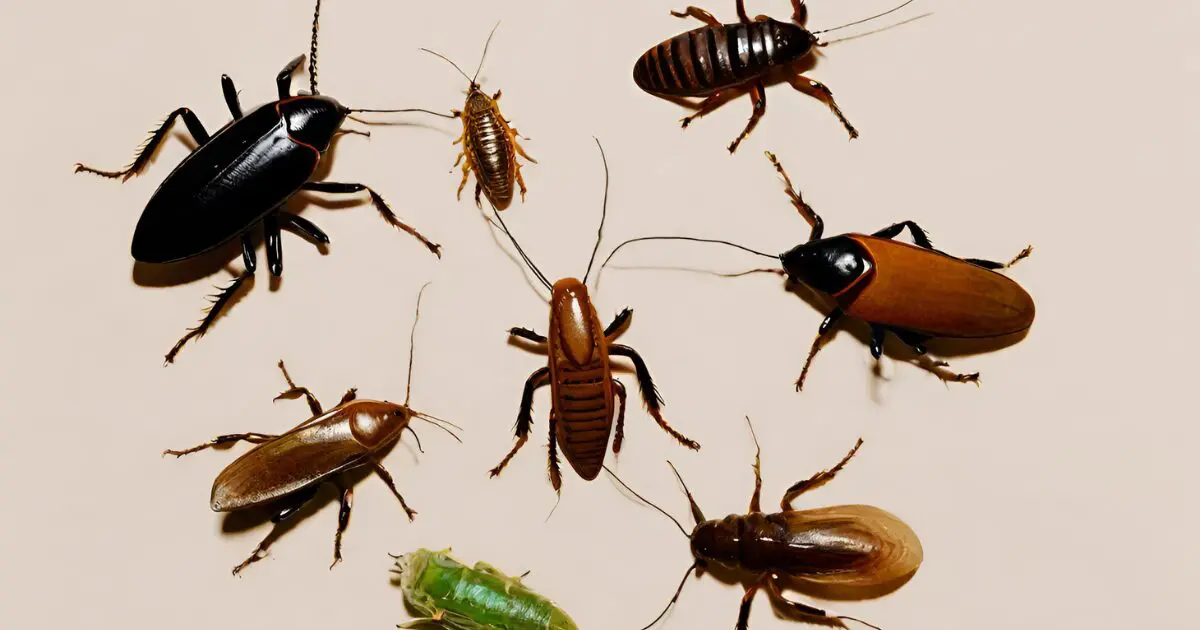
Let’s talk about insects first. This is because young beardies need insects in big numbers. Your young reptile needs 50% insects in its diet. And the other 50% should include plant-based food.
Adult beardies also need to eat insects, but not as much as the young ones. A 20% inclusion of insects in adults’ diet is alright. Some insects are safe for them, while some insects are not. Let’s have a quick look at the safe options for them. Here’s a list of 15 insects bearded dragons can eat:
- Crickets
- Grasshoppers
- Phoenix Worms
- Mealworms
- Silkworms
- Waxworms
- Superworms
- Dubia roaches
- Pacman Frog Feeder Roaches
- Hornworms
- Locusts
- Black Soldier Fly Larvae
- Discoid Roache
- Houseflies
- Blow Flies, etc.
You can check my other blog for a detailed breakdown, but for now, check the table below to see the nutrition profile of some insects.
| Nutrient (per 100g) | Crickets | Mealworms | Superworms | Goliath Worms | Dubia roaches |
| Protein | 15.4 g | 18.7 | 19.7 g | 9 | 21.4 g |
| Moisture | 77.1 g | 61.9 | 57.9 g | 85 | 71.5 g |
| Fiber | 2.2 g | 2.5 | 2.7 g | n/a | 2.6 g |
| Calcium | 2.8 mg | 169 mg | 17.7 mg | 46.4 mg | 70 mg |
| Phosphorous | 25 mg | 295 mg | 237 mg | 139.4 mg | 260 mg |
| Fat | 3.3 g | 13.4 | 17.7 g | 3.07 | 3.1 g |
| Ash | n/a | 0.9 | 1.0 g | n/a | 1.3 g |
How to Feed Insects to Bearded Dragons?
Follow these guidelines while feeding insects to bearded dragons. It will ensure they are getting the necessary nutrition without getting harmed.
- Choose insects of the right size. Phoenix worms or silkworms are ideal for bearded dragons, while adults like to munch on crickets, dubia roaches, and superworms.
- Avoid wild-caught insects as they may lead to various parasite symptoms. Opt for commercially bred feeder insects from a pet store.
- Try gut-loading the insects before feeding them to your pet. Feed them chopped vegetables and calcium powder 24-48 hours before offering them to the pet.
- Give them live insects as their movement stimulates the hunting nature of bearded dragons.
- Remove previously uneaten food from the enclosure.
- For young or growing bearded dragons, lightly dust the insects with a calcium supplement with D3 before feeding.
- Put them on a feeding dish or feed them with a tong. Do not attempt to hand feed them as they may accidentally bite your hands. Thankfully, beardies’ bites usually do not hurt.
- You must remove uneaten insects after 10 to 20 minutes. Leaving them in can stress your dragon or allow them to escape.
Importance of Feeding Insects to Bearded Dragons
Feeding insects to bearded dragons is essential. It helps them in different ways.
1. Helps in Growth
Is your beardie not growing? This can happen due to a number of issues. One of the reasons can be due to lack of protein. Thankfully, most insects are high in healthy protein. Protein is often called the building blocks of cells. This nutrient can boost their bones and make their bodies stronger.
2. Stimulates Hunger
Remember I told you to feed living insects to bearded dragons? Because these lizards are inherently hunters. They live on live insects and bugs in the wild. Feeding them mimics their natural diet.
The movement of the insects increases their interest in food. This contributes to their adequate eating habit as well as ensures they have all the necessary nutrients needed to thrive.
3. Aids in Digestion
Did this come as a surprise? But it is indeed a fact. The outer shell of insects contains chitin, which helps in breaking down food. All animals need to break down the consumed food to get the nutrition. By breaking down foods, chitin, as well as insects, contribute to bearded dragon digestion and overall well-being.
4. Maintains Healthy Weight
Just like humans, proper body weight is crucial for bearded dragons as well. Beardies are supposed to be light well, not fat. Their average healthy weight ranges between 280 to 500 gm. Eating too much food could lead to weight gain and eventually, obesity.
Bearded dragons eat a good number of insects. They need it for necessary protein and body growth. Thankfully, insects are mostly low in calories. Therefore, eating them usually do not lead to obesity and they get necessary nutrition as well. This makes insects an ideal component in their diet.
What Can Happen If I Don’t Feed Insects to Bearded Dragons?
Whenever I give my beardies insects, their mood lightens up. You will notice the same with your pet. However, not giving them insects at all can be harmful for them.
- Bearded dragons need insects for protein and essential vitamins that are not found in vegetables alone. Skipping insects can lead to malnutrition.
- Insects provide calcium for strong bones. Without them, bearded dragons can develop Metabolic Bone Disease (MBD).
- Bearded dragons may become overweight if they only eat vegetables, which are higher in carbs.
- Dragons who don’t get insects early on might reject them later. It makes it difficult for them to maintain a healthy diet.
How Do Bearded Dragons Catch Prey?
Beardies are natural hunters. They eat many different types of insects in wildlife. In fact, they primarily live on insects in the wild. Feeding insects to them provokes and stimulate this natural behavior.
- These reptile dragons are ambush predators. They will lie and wait for their prey upon noticing them. With their powerful eyesight, these lizards can keep track of prey from a distance. They have all the patience to wait for a long time.
- Once the unsuspected prey approaches, they jump in and ambush. Beardies are surprising fast movers, when it comes to running and jumping in.
- The long and sticky tongue is the primary weapon bearded dragons have. The tongue size of bearded dragons allows them to snatch prey even if the prey is not very close to them.
- Bearded dragons have powerful jaw to crush and eat insects. The chitinous exoskeleton aids in digestion and helps gain necessary energy to stay healthy and active.
What Fruits Can Bearded Dragons Eat?
Beardies can eat many fruits. Fruits provide them with some of the essential nutrition they need to stay fit, healthy, and active.
While choosing fruits, you must go for the ones that have more nutritional value. Some of them are mostly water without much nutritional value. Therefore, these juicy foods cannot be their staple food. However, fruits are good occasional fruits. Some good fruits for bearded dragons.
1. Grapes
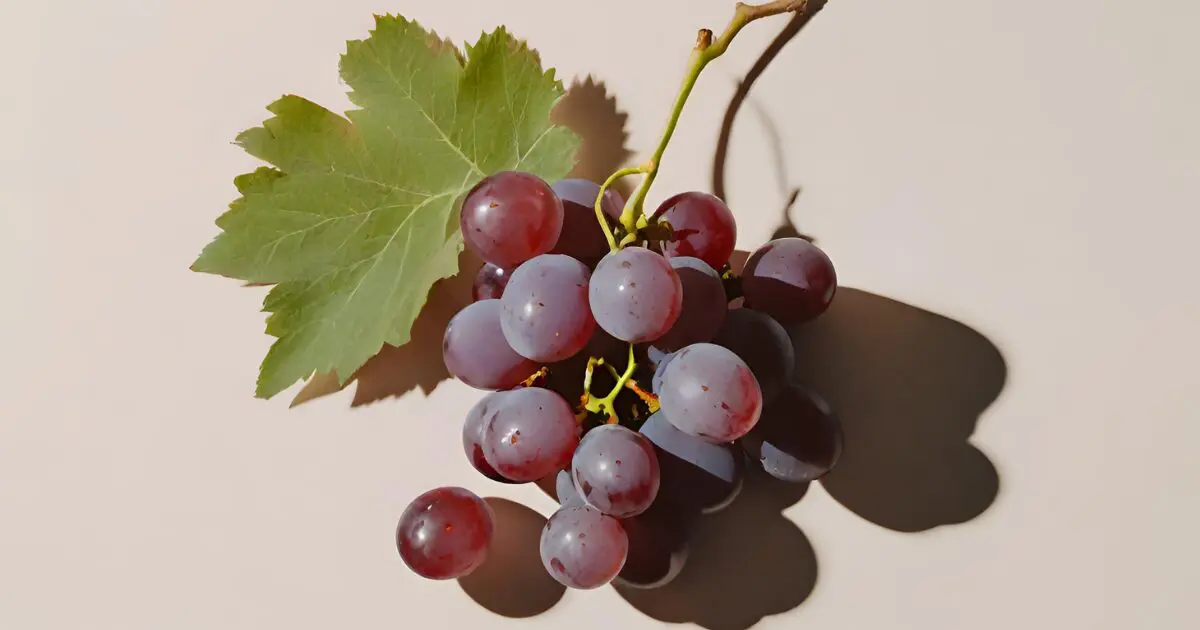
When it comes to fruits, I prefer giving grapes to my Spike. It has a little amount of calcium and magnesium that ensures my lizard pet is not having a meal completely free of essential minerals. Though the protein amount is very low, I am grateful for the water content it has. The fruit is more than 80% water, which helps them stay hydrated during the hot season. Remember that they gain their hydration from food mostly.
| Nutrition name | Amount per 100 g |
| Water | 80.54 g |
| Energy | 69 kcal |
| Protein | 0.72 g |
| Fiber | 0.9 g |
| Calcium | 10 mg |
| Iron | 0.36 mg |
| Magnesium | 7 mg |
| Sodium | 2 mg |
| Vitamin B-6 | 0.086 mg |
2. Strawberry
Strawberry is another fruit that is safe for dragons. The fruit is rich in water content, more than 90%. This is also a concern. Consuming too much water content can lead to bloating. Besides, they may lose appetite for other foods and so won’t get the necessary nutrition required. I choose it when the weather is too hot, even for bearded dragons.
A number of essential minerals, such as calcium, zinc, magnesium, and potassium are present in strawberry. It can be a good weekly or monthly addition to your pet’s diet during the hot season, or if the beardie is suffering from dehydration.
| Nutrition | Amount per 100 g |
| Water | 91 g |
| Energy | 32 kcal |
| Protein | 0.67 g |
| Total Sugars | 4.89 g |
| Calcium | 16 mg |
| Magnesium | 13 mg |
| Potassium | 153 mg |
| Zinc | 0.14 mg |
| Sodium | 1 mg |
3. Dragon Fruit
Can bearded dragons eat dragon fruits? Of course, they can. The fruit is a good source of energy and minerals compared to other fruits. Nonetheless, it is still not safe to be a regular part of dragons’ diet . The fiber content in the fruit promotes heathy gut condition. Still, the lack of protein, vitamins, and too much water content are concerning.
| Nutrient | Amount per 100 g |
| Water | 84 g |
| Energy | 57 kcal |
| Protein | 0.36 g |
| Fiber | 3.1 g |
| 9.75 | 9.75 g |
| Potassium | 116 mg |
| Phosphorus | 12 mg |
| Calcium | 9 mg |
| Vitamin C | 4.3 mg |
4. Watermelon
This one is a debatable issue. Some say it is edible for bearded dragons, while others say it is not. The fruit contains too much water without many vitamins and other necessary nutrients.
| Nutrient | Amount per 100 g |
| Water | 91.4 g |
| Energy | 30 kcal |
| Protein | 0.61 g |
| Fiber | 0.4 g |
| Total Sugars | 6.2 g |
| Calcium | 7 mg |
5. Bananas
Bananas are another good option for beardies. Like other fruits, its sugar intake is a concern. This is why I suggest you not feed them much of this food. It requires careful feeding to ensure proper nutrition for reptiles.
| Nutrients | Amount per 100 g |
| Water | 74.9 g |
| Energy | 371 kJ |
| Protein | 1.09 g |
| Total Sugars | 12.2 g |
| Calcium | 5 mg |
| Magnesium | 27 mg |
| Phosphorus | 22 mg |
6. Raspberries
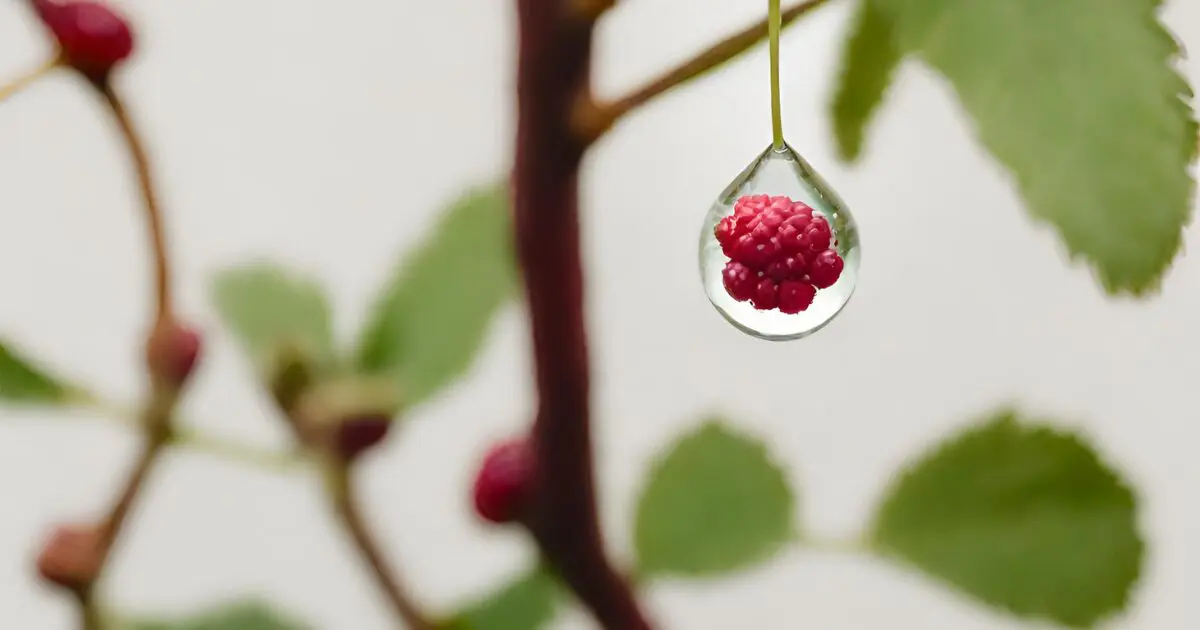
Bearded dragons can eat raspberries in small amounts. 1 or 2 raspberries a week is beneficial for them. It provides them with water, energy, protein, and minerals. However, the presence of sugar is a concern. Excessive consumption can lead to health issues.
| Nutrients | Amount per 100 g |
| Water | 85.8 g |
| Energy | 52 kcal |
| Carbohydrate | 11.9 g |
| Protein | 1.2 g |
| Total Sugars | 4.42 g |
| Fiber | 6.5 g |
| Vitamin C | 26.2 mg |
| Calcium | 25 mg |
| Magnesium | 22 mg |
| Potassium | 151 mg |
7. Pineapple
Pineapple is a sweet, soft, and juicy fruit. Sadly, though, beardies cannot taste sweetness. Therefore, there is no good reason to add this fruit to their diet. The water content of the fruit is also alarmingly high. Bearded dragons’ digestive system is not well-designed for dealing with sugar either.
The undigested sugar can remain in the body and blood. This can lead to various health issues, including diarrhea, obesity, or worse, diabetes. Only a small size can be given for a change. But by no means it should not be fed more than twice a month. Each feeding session should contain only a small amount. How small? It may be half the size of one of your hand fingers.
| Nutrients | Amount per 100 g |
| Water | 86 g |
| Energy | 50 kcal |
| Protein | 0.54 g |
| Fiber | 1.4 g |
| Total Sugars | 9.85 g |
| Calcium | 13 mg |
| Magnesium | 12 mg |
| Iron | 0.29 mg |
How to Serve Fruits to Bearded Dragons?
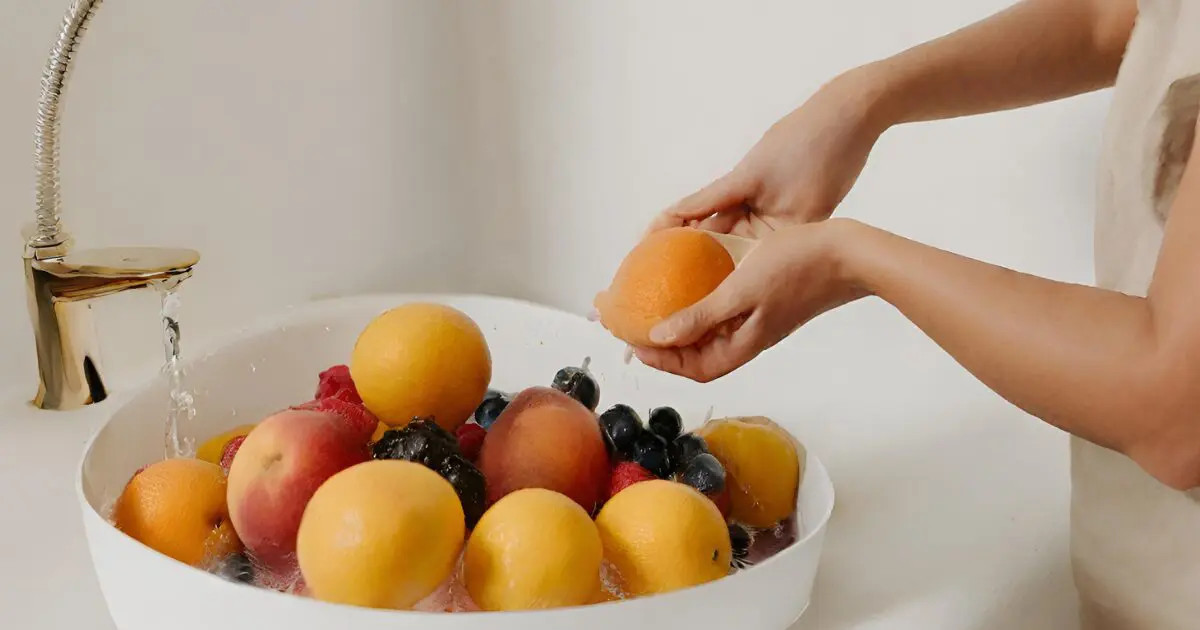
Yes, bearded dragons can enjoy a small amount of fruit as part of a balanced diet. However, it’s important to remember that they are primarily insectivores. Fruits should only make up about 10-20% of their plant-based intake.
- Remember that fruits are only good for them as an occasional treat. Some fruits can be fed once or twice a week. Some can be fed once a month.
- Wash all fruits thoroughly and chop them into bite-sized pieces suitable for your dragon.
- Remove any pits or seeds that could be harmful to your bearded dragon.
- For fruits high in sugar, offer very small amounts or dilute them with chopped vegetables.
- Avoid citrus fruits altogether, as they’re too acidic for your dragon’s digestive system.
- Be aware that too much fruit can cause digestive problems.
Benefits of Feeding Fruits to Bearded Dragons
Though some people claim beardies to be primarily insectivores, they need fruits as well. It promotes good health in various ways. Let’s have a quick look.
1. Helps in Hydration
Most fruits are high in water. Think about bananas, berries, melons, pineapple, etc. These fruits contain 70 to 90% water of their total weight. Eating fruits can help them maintain their water intake.
Water is crucial for these lizards in different ways. They need water to digest food, as well as to maintain good metabolism.
2. Offers Vitamins
Certain fruits are packed with vitamins that complement a bearded dragon’s diet. For example, mangoes and papayas are rich in beta-carotene, which converts to vitamin A. Vitamin A is important for their healthy growth. Checking their nutrition profile before feeding them is often recommended.
3. Adds Variations to Diet
Bearded dragons can get bored of a repetitive diet. Introducing a variety of chopped, colorful fruits can stimulate their appetite and encourage them to eat their veggies. This is especially helpful for picky eaters like my Spike.
4. Provides Essential Fiber
Some fruits contain a good amount of fiber. Green apples and pears are good examples of it. This aids in digestion and promotes their gut health. With an improved digestive system, beardies can consume all the nutrition from the food they eat and stay healthy. They gain more nutrition from less food, which prevents lethargy and overweightness.
5. Boosts Antioxidant Intake
Many fruits are loaded with antioxidants. This is a nutrient that neutralizes harmful free radicals in the body and prevents cell damage. This can contribute to your bearded dragon’s overall health and well-being.
Feeding Vegetables to Bearded Dragons
Bearded dragons can also eat vegetables. It is a fact. However, by beardies, I mean greens. Vegetables are not greens and are often not safe. You need to research specific vegetables. Let’s learn about some of the common vegetables and see if your dragon can eat them.
1. Tomato

Tomato, despite being red, is a green flag for bearded dragons. They can eat this vegetable. However, it should be consumed in small amounts only. It is not full of nutrition, so it is a no-brainer to feed them too many tomatoes. It does not contain many vitamins or minerals. Nonetheless, it can be a refreshing treat for the pet occasionally.
| Nutrients | Amount per 100 g |
| Water | 94.5 g |
| Energy | kcal |
| Protein | 0.88 g |
| Carbohydrate | 3.89 g |
| Fiber | 1.2 g |
| Total Sugars | 2.63 g |
| Calcium | 10 mg |
2. Onion

No, bearded dragons cannot eat onions. It is not safe for them because of the high presence of acidic content. It can be toxic to them, and they may have digestive issues. Besides, onions have a poor nutrition profile, and it makes no sense to feed them.
Onions are highly acidic, containing sulfenic acids, ethanoic acid, phosphoric, and malic acid. Besides, it has more phosphorus than calcium. It can lead to calcium deficiency in them.
Bearded dragons have a delicate and simple digestive system. It is not suitable for dealing with the types of acid onions contain. It can lead to various digestive issues like diarrhea, vomiting, etc. It is better not to feed them vegetables.
| Nutrient name | Amount per 100 g |
| Water | 89.1 g |
| Energy | 40 kcal |
| Protein | 1.1 g |
| Total Sugars | 4.24 g |
| Calcium | 23 mg |
| Phosphorus | 29 mg |
| Pantothenic acid | 0.123 mg |
3. Spinach
The answer is no. Bearded dragons cannot eat spinach, which is not as stable a food as it contains high amounts of oxalates. Oxalates can cause calcium issues, which is an important mineral for beardies. If you really want to feed it, do it rarely. Maybe once in a couple of months would be fine.
| Spinach (raw) | Per 100g Serving |
| Water | 91.4 g |
| Energy | 23 kcal |
| Protein | 2.86 g |
| Carbohydrate | 3.63 g |
| Total Sugars | 0.42 g |
| Calcium | 99 mg |
| Phosphorus | 49 mg |
| Oxalates | 658 mg |
| Vitamin A, RAE | 469 µg |
4. Carrot
Yes, carrots are one of the safest vegetables for bearded dragons. My beardie loves it when I give it to them. Raw carrots are basically almost 90% water. It has a very low amount of sodium and sugar, which are not beneficial for your reptile friend.
Raw carrots are very hard and can be a choking hazard for dragons. So, I always cook the carrots first to soften them up. I’ll steam or boil carrot chunks or carrot baby food until they are soft but not mushy. Beardies do not like their food being mushy.
| Nutrition | Amount per 100g |
| Water | 88.3 g |
| Energy | 41 kcal |
| Protein | 0.93 g |
| Fiber | 2.8 g |
| Total Sugars | 4.74 g |
| Calcium | 33 mg |
| Vitamin C | 2.2 mg |
| Vitamin A | 872 mg |
| Sodium | 69 mg |
How to Feed Vegetables to Bearded Dragons
Let me show you how to feed bearded dragons vegetables. Improper manners can lead to consequences.
- Wash all vegetables thoroughly and chop them into bite-sized pieces to avoid choking. Remove tough stems.
- Opt for fresh, vibrant veggies and discard any wilted parts. Rotate offerings to ensure a well-rounded diet.
- Use shallow dishes and scatter veggies around the enclosure. It encourages natural foraging behavior.
- Dust veggies with calcium powder a few times a week to prevent deficiencies. Consult your vet about vitamin D3 supplementation.
Benefits of Feeding Vegetables to Bearded Dragons
Veggies are a staple in a bearded dragon’s diet. It offers essential nutrients and promotes good health. Here’s a breakdown of their benefits:
- Vegetables are rich in vitamins. You will find vitamins C, A, and K in different vegetables. These vitamins ensure proper health for beardies.
- Beardies can also get necessary minerals from vegetables. The greens mentioned above contain more calcium and maintain a healthy calcium and phosphorus ratio.
- Vegetables are easy to find and easy to feed. It makes taking care of vegetables much easier and more convenient.
- Along with vitamins and minerals, vegetables have other necessary nutrients as well. This is why adults need more vegetables than insects.
- Vegetables are low in fat and calories. It makes them good for bearded dragons to maintain a healthy weight.
Can I Feed My Bearded Dragon Flowers?
Yes, bearded dragons can also eat flowers. Their omnivorous instinct makes them curious about any food. Sometimes they may eat but not poop. I have already given a chart of self-food, including flowers. Follow that and consult a vet whenever you try a new item.
Flowers that Bearded Dragons Can Eat
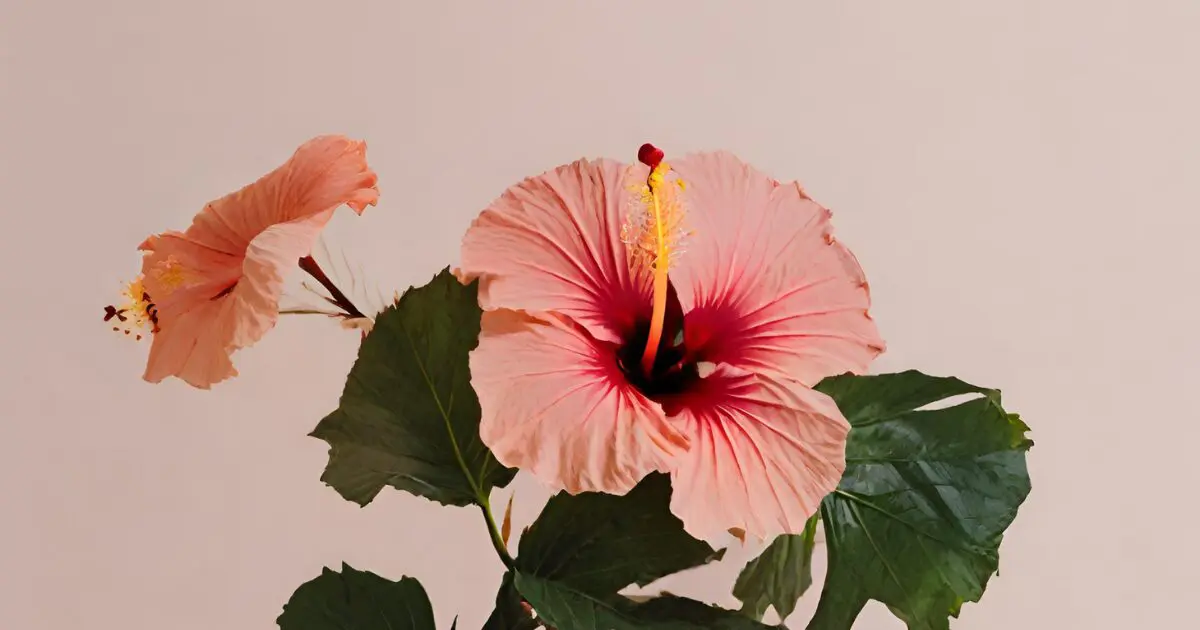
Beardies can actually eat several types of flowers. Sometimes, they will show utter interest in eating them. Let’s have a quick look.
- Dandelions: Bearded dragons can eat both the leaves and bright yellow flowers of dandelions. They are a good source of vitamins and calcium. Just ensure they have not been treated with pesticides. Dandelion green is one of their favorite foods.
- Hibiscus: These flowers are rich in vitamin C and antioxidants. They are a delightful tropical treat for your lizard friend. You can offer them fresh or dried flowers. I prefer dried ones as they last for a few years.
- Nasturtiums: These vibrant, peppery flowers are packed with vitamins A and C. Just be sure they haven’t been sprayed with chemicals. Bearded dragons have a very simple digestive system that cannot deal with chemicals.
- Roses: We humans don’t eat these beautiful flowers. And the same goes for bearded dragons. They do not eat roses very often. Roses are often thorny, and they pose the risk of getting hurt by bearded dragons. Make sure to remove the thorns before giving them it.
- Clover: Clover is generally safe for bearded dragons in small quantities. However, red clover can be high in calcium oxalate, which can interfere with calcium absorption. Opt for white or yellow clover instead.
How to Feed Flowers to Bearded Dragons?
Follow these simple steps to feed the safe flowers to your dragon.
- Not all flowers are safe for bearded dragons. Stick to approved options like dandelions, hibiscus, roses, carnations, geraniums, and nasturtiums.
- Avoid flowers treated with pesticides or herbicides. Opt for organically grown flowers or buy them from reputable pet stores.
- Even safe flowers need a good rinse. Wash them with clean water to remove any dirt or residue.
- Only feed your bearded dragon fresh, unwilted flowers.
- Flowers should be offered as occasional treats, not as dietary staples. Their primary diet should consist of vegetables and insects.
- Since flowers are low in nutrients, offer them in small quantities. A good rule of thumb is to keep flower portions to no more than 20% of their total meal.
- For smaller beardies, chop the flowers into bite-sized pieces to prevent choking.
Health Benefits of Flowers for Your Reptile Pets
There are minimal to no documented health benefits of feeding flowers to bearded dragons. Their primary diet should focus on insects and vegetables that provide essential nutrients like calcium and vitamins.
Flowers can be a source of hydration due to their water content, but vegetables offer a similar benefit. Give them flowers only to bring a change to their diet. Sometimes, these dragons go crazy for flowers upon seeing them. Make sure you are not overfeeding them.
What Nutritions Do Bearded Dragons Need?
To maintain a healthy bearded dragon diet, you need to know about their nutrition requirements. This will help you understand which food is good for them. And which foods are to be avoided.
1. Protein

Protein is a vital nutrient for bearded dragons, especially for the growth of young dragons. It aids in tissue repair and overall health throughout their lifespan.
Crickets, dubia roaches, and mealworms are excellent feeder insects packed with protein. Additionally, lean chicken breast and eggs can be good occasional food. Lack of protein can lead to several health issues for beardies.
2. Calcium
The most important mineral for beardies. It is absolutely essential for bearded dragons to develop strong bones and prevent metabolic bone disease. Dust your feeder insects with calcium powder before offering them to your pet.
Some vegetables and greens can be given too. Collard greens and mustard greens are excellent vegetables that are rich in calcium.
3. Vitamins
A variety of vitamins are crucial for a bearded dragon’s overall health. They need vitamins for vision, digestion, and mobility. They need several vitamins, but vitamins A, D3, and B complex are the major ones.
Insects are not the ideal sources of vitamins. Instead, you need to look for vitamins in vegetables and fruits. Give them a variety of chopped vegetables and fruits like carrots, berries, apples, etc.
Some supplementary foods are also available for vitamins. You must be careful while choosing supplement products.
4. Water
Bearded dragons obtain most of their hydration from their diet. Therefore, you need to give them foods rich in water. Fruits and vegetables are excellent options for that.
Nonetheless, they still need fresh water. Lack of water intake can lead to various issues. Their skin may look pale, their eyes will become sullen, and their scales may lose color.
Keep a shallow water dish in their enclosure, and remember to change the water daily. Adding mist is recommended every week. You can do it lightly. Also, proper ventilation should be ensured to prevent respiratory issues.
5. Fiber

Fiber plays a crucial role in a bearded dragon’s digestive system. It aids in proper gut movement and helps regulate digestion. However, too much fiber can be detrimental. It may impede the absorption of other essential nutrients.
Most vegetables and fruits naturally contain fiber. Leafy greens like collard greens and mustard greens are good sources of fiber. Offer these in moderation as part of a balanced diet. Avoid overly fibrous vegetables like iceberg lettuce or celery.
6. Sugar
Sugar is not needed for bearded dragons. Their digestive system is not good for digesting sugar. A little amount of sugar can provide bearded dragons with quick energy, though. Excessive sugar intake can lead to obesity, lethargy, and even fatty liver disease.
Avoid sugary treats or processed foods altogether. Fruits naturally contain sugar, so they should only be offered as occasional treats. Berries like raspberries or blueberries are a good choice in small quantities.
A Checklist for an Ideal Food List
You must be aware of a few points while making the diet chart for your beardie. Here is a checklist for a good diet.
- 50-70% protein insects and 30% vegetables for baby bearded dragons.
- Adult beardies need no more than 20% of animal insects.
- Variation should be maintained for insects, vegetables, and fruits.
- Feed insects nutritious foods 24-48 hours before offering them to your dragon.
- Dust live feeders with calcium powder before feeding.
- Wash vegetables thoroughly before feeding.
- Leafy greens are good for calcium, but limit high-oxalate options like spinach.
- Avoid iceberg lettuce and celery.
- Remove uneaten foods daily. For insects, remove them after 15 to 20 minutes.
- Consider a reptile multivitamin according to package directions.
- Wash hands before handling food, and clean your dragon’s terrarium regularly.
What to Do if a Bearded Dragon Is Not Eating?
Remember that beardies need to eat regularly. They may not be in heavy weather, but they still need food. Here are some of the things you can do if they are not eating.
- Stress: A major reason for beardies not eating can be their stress. Inspect the enclosure and check if there is anything wrong. Is the enclosure size big enough for them? Also, reduce handling to minimize stress on them.
- Growth factor: Sometimes, not eating is not a problem. Instead, it can be a hint that they are growing. Offer them live insects during this time as they need more protein. They won’t show much interest in immobile foods during this time.
- Shedding: You may find it phenomenal, but shading is actually uncomfortable for them. Check it carefully for any sign of shedding. Is it facing difficulty to shed? Never intend to pull or peel it yourself. Give it a hot bath instead.
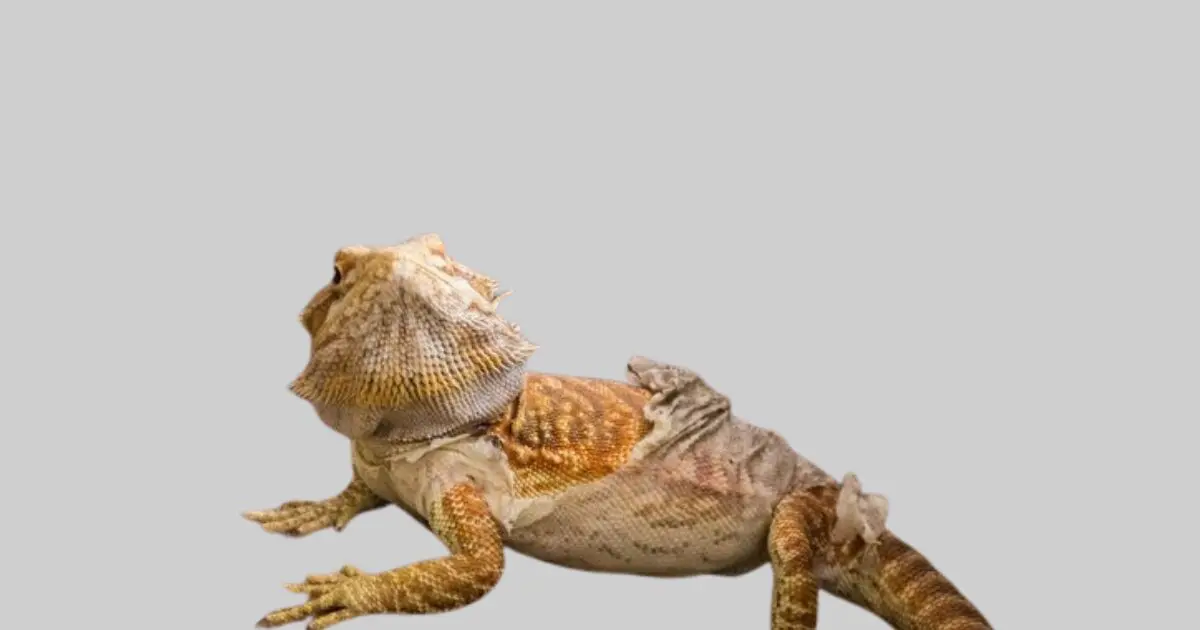
- Transition: Young beardies prefer eating more insects. But suddenly, you may notice they are leaving more and more leftovers. This might be due to their transition to adulthood. Adult consumption of insects reduces significantly. Give them greens, fruits, and flowers more than animals.
- Territorial turbulence: Bearded dragons love to live in solitary. They do not enjoy being in the company of other beardies. They see it as an invasion. Don’t keep two beardies in the same tank. They may fight for food and can be stressed.
- Boredom: Are you offering the same food? This can bore them, and they may refuse to eat. Sometimes, they can be very picky. Therefore, maintaining a variation is important.
- Brumation: Reptiles reduce their food intake before going to brumation. What time of the year is it? They usually brumate from June to August. Not eating during this time is okay.
FAQ
Are more questions popping up in your mind? Check if the questions below quench your thirst for knowledge.
1. Can Bearded Dragons Eat Meat?
Bearded dragons can technically eat small amounts of cooked, lean meat as a rare treat. However, it’s not ideal for their diet due to its high fat content. Poor calcium-to-phosphorus ratio is another concern. Stick to insects and veggies for their main meals.
2. Is Chicken OK for Bearded Dragons?
Chicken is not recommended for bearded dragons. A tiny, occasional piece might be all right. However, it is high in fat and throws off their calcium balance. Stick to feeder insects and veggies for their main diet.
3. Can Bearded Dragons Eat Hair?
No, bearded dragons shouldn’t eat hair. It offers no nutritional value and can cause digestive problems. They might nibble on it out of curiosity but discourage it and offer proper food options.
4. Do Bearded Dragons Get Thirsty?
Yes, bearded dragons do get thirsty! They usually get most of their water content from the solid food they eat. Still, you need to provide them with enough fresh water. This helps in digestion and other health concerns.
5. What Foods Do Bearded Dragons Love Most?
Bearded dragons don’t necessarily have favorite foods like we do. They instinctively go for feeder insects due to the protein and movement. Adult bearded dragons like to have more vegetables. And a balanced diet includes fruits and flowers they might find equally appealing.
6. Do Bearded Dragons Feel Hungry?
Bearded dragons likely experience physiological signs of needing food. They may show increased activity or hunting behaviors. They may not feel hunger in the same way we do, but their body communicates their need to eat. Feed your dragon every other day to prevent hunger.
Conclusion
Bearded dragons are easy to pet because of their easy diet. They eat a variety of foods, and most of them are easy to find. You can feed them raw leftover vegetables and fruits as well.
Feeding beardies is a pleasing experience. You must maintain a variation of their diet to ensure they are getting all the necessary nutrition. Educate yourself about the nutrition profile of a new food before giving it to your pet. Hopefully, your bearded dragon will be healthy, active, and strong.
Sources:
- https://www.avianexoticvetcare.com/handouts/reptiles/bearded-dragons.pdf
- https://www.allcreaturesanimalhospital.com/pdf/reptile-bearded-dragons/bearded-dragon.pdf
- https://www.svvspets.com/wp-content/uploads/2019/12/Bearded-Dragon-Care-Guide.pdf
- https://wpvet.com/wp-content/uploads/2021/03/gut-loading.pdf
- https://www.betterhealth.vic.gov.au/health/healthyliving/protein
- https://health.gov/myhealthfinder/healthy-living/nutrition/get-enough-calcium#:~:text=Your%20body%20needs%20calcium%20to,adults%2C%20and%20women%20after%20menopause.
